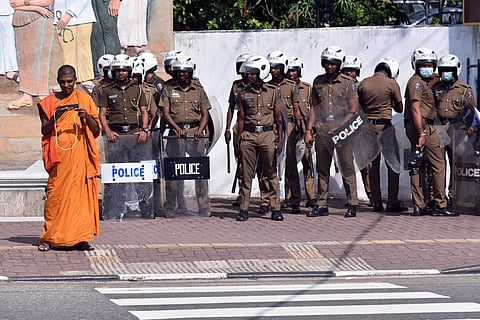Sri Lanka’s Online Safety Act brings it a step closer to Buddhist theocracy
NAMES CAN BE misleading. The Tree of Cracow never knew Poland. It was a hoary chestnut in the Palais-Royal Garden in 18th-century Paris, when France was subjected to two intertwined tyrannies: the royal rule of the Bourbons and the clerical rule of the Catholic Church. Censorship was the order of the day, book-burning not uncommon, and the wrong word could land you in the Bastille prison. Still, Parisians’ thirst for news was unquenchable, and the Tree of Cracow became the locus of a flourishing news-exchange. As the historian Robert Darnton writes, news-mongers gathered around it every day to exchange the latest tidings by word of mouth. Even ambassadors sent their agents.
Legend had it that this particular chestnut made a cracking sound whenever someone uttered a falsehood nearby – to the point that “craque” became slang for false news. Sri Lanka’s new Online Safety Act, another misleadingly named entity, could do with a similar feature. The act mandates the appointment of an Online Safety Commission by the president with the concurrence of the Constitutional Council, and tasks this body with judging the veracity or falsity of any contentious online statement. A “false” statement is defined as one “known or believed by its maker to be incorrect or untrue.” How the commission’s five members are expected to divine this is unclear. Do they turn to polygraphs? Or mind reading?

